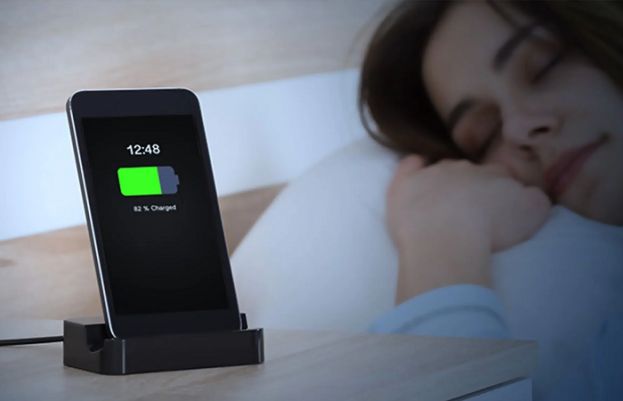In the world of lithium-ion batteries, smartphones take centre stage. Yet they’ve also sparked an ongoing debate: does prolonged (or overnight) charging wreak havoc on your battery? A number of factors determine a phone battery’s lifespan, including its manufacturing age and its chemical age. The latter refers to the battery’s gradual degradation due to variables such as fluctuations in temperature, charging and discharging patterns and overall usage. Over time, the chemical ageing of lithium-ion batteries reduces charge capacity, battery lifespan and performance. According to Apple:A normal [iPhone] battery is designed to retain up to 80% of its original capacity at 500 complete charge cycles when operating under normal conditions. Research has found a 2019 smartphone battery could, on average, undergo 850 full charge/discharge cycles before dropping to below 80% capacity. This means only 80% of the initial battery capacity remains after about two to three years of use. At this point the battery begins to deplete noticeably faster. Samsung says:charging your battery up to 100% too frequently may negatively impact the overall lifespan of the battery. Similarly, keeping iPhones at full charge for extended periods may compromise their battery health. Rather than a full top-up, it’s recommended to charge your battery up to 80% and not allow it to dip under 20%. Can your phone be overcharged?In theory, lithium-ion batteries can be overcharged. This can lead to safety risks such as the battery overheating and catching fire. The good news is most modern phones have an in-built protection that automatically stops the battery from charging further than 100% – preventing any damage from overcharging. However, each time a battery drops to 99% (due to apps running in the background) it will “trickle charge”: it will start charging again to maintain a fully charged state. Trickle charging can wear a battery down over time. That’s why many manufacturers have features to regulate it. Apple’s iPhones offer functionality to delay charging past 80%. Samsung’s Galaxy phones provide the option to cap the charge at 85%. Can your phone explode from charging?It’s very unlikely your smartphone will explode as a result of charging – especially since most phones now have automatic protections against overcharging. Still, over the years we have seen several reports of phones exploding unexpectedly. This usually happens as a result of manufacturing faults, poor-quality hardware or physical damage. Lithium-ion phone batteries overheat when the heat generated during charging is unable to dissipate. This may cause burns or, in extreme cases, lead to a fire. Also, these batteries operate effectively within a temperature range of 0°C to 40°C. They may expand at higher ambient temperatures, potentially causing a fire or explosion. Using an incorrect, faulty or poor-quality charger or cable can also lead to overheating, fire hazards and damage to the phone itself.
Should you charge your phone overnight?

